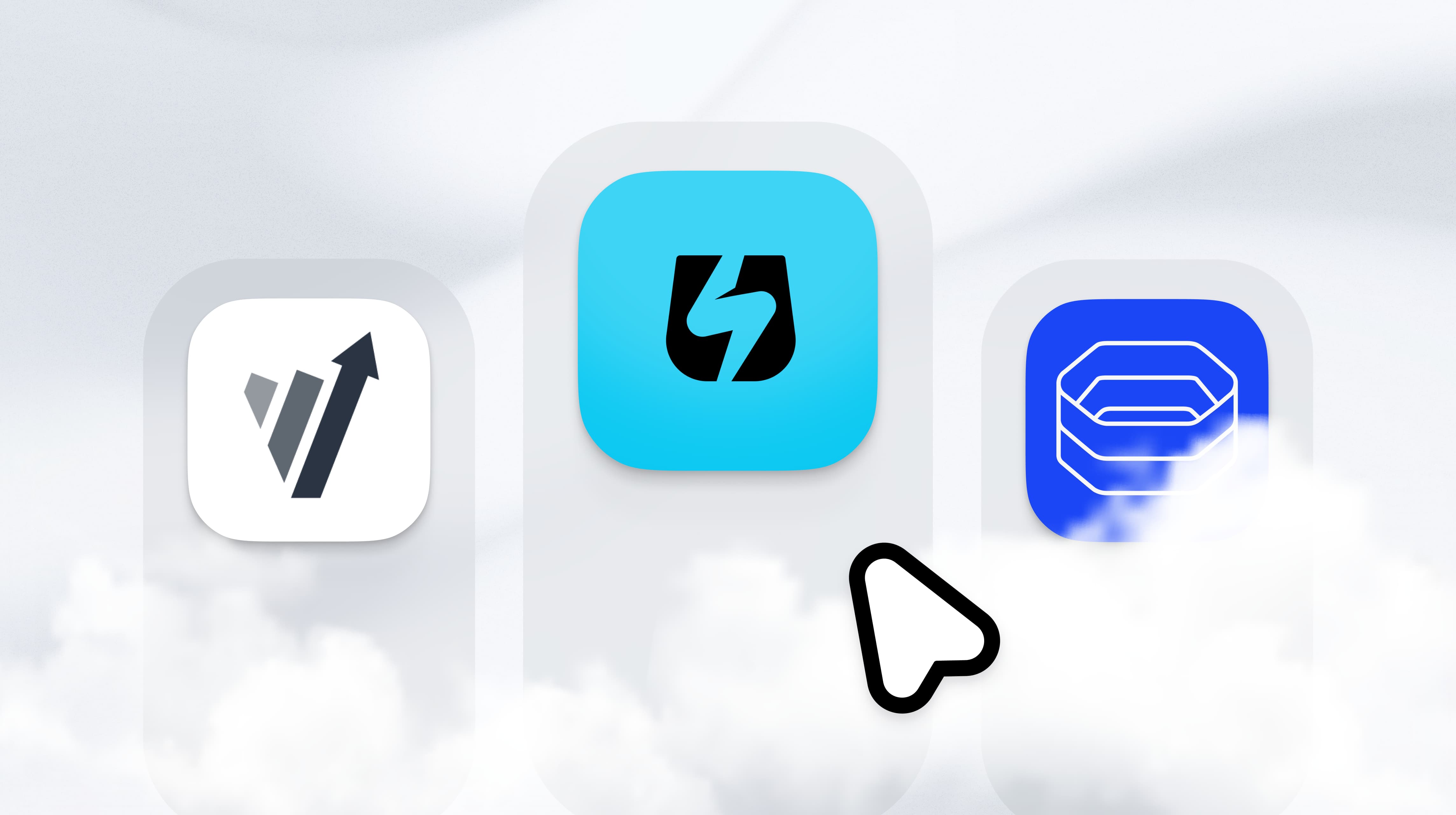
The best A/B testing tools for eCommerce
Rebecca Anderson
The best A/B testing tools for eCommerce
A/B testing, a method of comparing two versions of a webpage or app to determine which one performs better, is crucial for enhancing conversion rates and user experience. However, selecting the right A/B testing tool for your eCommerce business is vital to ensure accurate testing processes and optimal results.
This article will delve into the essential considerations when choosing A/B testing tools for eCommerce, explore parallel testing capabilities, identify key features to seek in A/B testing platforms, and discuss critical factors to consider in eCommerce testing.
What you need to know about A/B testing tools for eCommerce
A/B testing tools are essential for eCommerce businesses looking to improve their conversion rates and overall user experience. These tools allow you to compare different versions of your website or app to determine which performs better regarding user engagement and conversions. When selecting an A/B testing tool for your eCommerce store, consider factors such as ease of use, integration capabilities, and pricing.
Let's take a look at five of the most popular A/B testing tools for Shopify.
5 of the best Shopify A/B testing apps
All of these tools are listed in the Shopify app store and can be used for A/B testing. Each app offers different testing capabilities depending on the type of content tested and the pricing plan.
For Shopify native A/B testing: Instant
Instant makes A/B testing feel seamless because it’s built directly into your store design workflow. Instead of exporting pages or adding extra scripts, you can create, launch, and track experiments right inside the Instant canvas. Test any page—homepages, product pages, collections, landing pages—and experiment with layouts, content, offers, and more.
What sets Instant apart is its server-side testing (no flicker), built-in conversion analytics, and smart auto-winner detection, which uses Bayesian models to automatically determine when a variant is truly outperforming the original. You can track sessions, CTR, conversions, AOV, and revenue per visitor without touching your analytics setup. Plus, if you're selling internationally, Instant supports Shopify Markets, allowing you to run localized tests by audience or region.
If you want to move faster, reduce guesswork, and scale what works, Instant makes A/B testing part of your everyday workflow, not a separate project.
Key Highlights:
Test any Shopify page: homepage, product, collection & landing pages
Server-side rendering—no flickering
Built-in analytics: conversions, CTR, AOV, RPV
Smart auto-winner detection with Bayesian probability
Works with Shopify Markets for region-based optimization
Pricing: $99–$249/mo
Shopify App Store Rating: ⭐ 5.0 (226+ reviews)
2. For testing every aspect of your store: Convert Experiences

Convert Experiences is a tool that delivers scalable, enterprise-grade A/B testing capabilities without the enterprise price tag. Their app is free to install, and Convert's pricing includes flat rate, all-in-one plans that depend on your expected monthly tested users.
Here's a closer look at their app:
2. For fast, reliable A/B testing: ABConvert

ABConvert offers a fast, reliable way for Shopify brands to run A/B tests, from pricing to content, shipping, checkout, templates & themes tests, and more.
It plugs naturally into your Shopify workflow, all without interrupting your structure or intensive tech support.
ABConvert is priced flat and transparently with no additional charge for testing velocity. Also, it offers direct and responsive support to help Shopify brands troubleshoot, interpret results, and move quickly.

3. For testing your campaign offers: Intelligems

Intelligems offers testing for your Shopify store’s content, campaign offers, and prices.
Intelligems has a number of pricing options, ranging from $99 to $499 per month.
Curious how ABConvert and Intelligems stack up? Here's a quick comparison of ABConvert vs. Intelligems.

4. For all-around A/B testing: Visually

Visually offers A/B testing across your Shopify store and offers a range of plans, starting with a 14-day free trial to their prime plan ($199 per month).

5. For AI-assisted A/B testing: OptiMonk

Optimonk offers options for AI-assisted A/B testing (plus other CRO and pop-up features). With Optimonk, you can A/B test headlines, including AI-suggested text variants.
There is a wide range of pricing options: from free to $249 per month.

All of these tools come with various features and capabilities, so it's essential to understand your business's needs before making a decision.
Key features to seek in A/B testing platforms
When evaluating A/B testing platforms for your eCommerce business, several key features can significantly impact the effectiveness of your testing processes. These features include:
Parallel testing capabilities
Parallel or split testing is a crucial feature to seek in A/B testing tools for eCommerce. This capability allows you to simultaneously test multiple variations of a webpage or app, enabling you to gather data more efficiently and make informed decisions. By conducting parallel tests, you can quickly identify which variations drive the highest conversion rates and optimize your website or app accordingly.
Parallel testing refers to the ability to run multiple tests simultaneously on different elements of your website or app. This feature is crucial for eCommerce businesses with a large and diverse user base. By running parallel tests, you can compare the performance of different versions of your website or app in real-time, allowing you to make data-driven decisions quickly.
When choosing an A/B testing tool for your eCommerce store, ensure it offers parallel testing capabilities to optimize your testing process and save time. Some tools even offer multivariate testing, allowing you to test multiple elements simultaneously, providing more comprehensive insights into user behavior.
Crucial integration capabilities
In addition to parallel testing, integration capabilities are another essential factor to consider when choosing an A/B testing tool for eCommerce. Your chosen tool should seamlessly integrate with your existing website or app platform, allowing you to conduct tests without disrupting the user experience.
Integration capabilities also enable you to connect your A/B testing tool data with other tools and platforms, such as analytics tools or customer relationship management (CRM) software. This integration allows you to gain a deeper understanding of your customers and their behavior, which can inform your testing strategy and overall business decisions.
Some A/B testing tools even offer integrations with popular eCommerce platforms such as Shopify, Magento, and WooCommerce, making it easier for eCommerce businesses to implement and manage A/B tests on their websites or apps.
In-depth reporting and analysis
The true value of A/B testing lies in the insights it provides. Therefore, when choosing an A/B testing tool for eCommerce, ensure it offers robust reporting and analysis capabilities. This includes detailed metrics and data visualization tools to help you understand your test results and their impact on user behavior.
Some tools even offer advanced analytics features, such as cohort analysis and funnel visualization, to help you dig deeper into your data and uncover valuable insights. These insights can then be used to optimize your website or app for maximum conversions and revenue.
Personalization options
Personalization is becoming increasingly important in the eCommerce industry as customers expect personalized experiences from brands. Therefore, when choosing an A/B testing tool for eCommerce, it's essential to consider its personalization capabilities.
Some tools offer advanced personalization options, such as audience segmentation and targeting. These options allow you to create unique experiences for different segments of your customer base, which can lead to higher engagement and conversions from targeted audiences.
Technical support
When conducting A/B tests on your eCommerce website or app, reliable technical support is crucial in case any issues arise. Look for A/B testing tools that offer prompt and responsive customer support, either through live chat, email, or phone.
Some tools also provide dedicated account managers to help you set up and execute your tests successfully. This can be especially helpful for eCommerce businesses with limited technical resources or experience in A/B testing.
Pricing plans
A/B testing tools for eCommerce have various pricing plans, from free options to more expensive enterprise packages. Consider your budget and the features you need when choosing a tool.
Tool | Pricing |
|---|---|
Instant | $99–$249/mo |
Convert Experiences | Flat rate depending on the expected monthly tested users. |
ABConvert | $59-$249/month |
Intelligems | $79-$599/month |
Visually | $19-$199/month |
OptiMonk | $39-$249/month |
Some tools offer tiered pricing plans based on the number of monthly visitors or tests, while others have flat-rate subscriptions. It is essential to understand how each pricing plan works and choose one that aligns with your budget and testing needs.
Additionally, some tools offer free trials or demos to test their features before committing to a paid plan. This can be beneficial in determining if the tool is the right fit for your eCommerce business.
Advanced targeting options
Choose a platform that offers advanced targeting options. These options allow you to segment your audience based on various criteria, such as demographics, behavior, and purchase history. These options can help you create more precise and relevant tests, leading to better results.
Some A/B testing tools also offer personalization features, allowing you to tailor your website or app experience based on a user's behavior and preferences. This can improve the overall user experience and increase conversions.
Comparing A/B testing tool reviews
Tool | Avg. rating | Review count | Source |
|---|---|---|---|
Instant | 5.0 | 226 | |
Convert Experiences | 0.0 | 0 | |
ABConvert | 4.9 | 66 | |
Intelligems | 4.9 | 105 | |
Visually | 4.8 | 68 | |
OptiMonk | 4.8 | 463 |
Critical factors to consider in eCommerce testing
In addition to the key features mentioned above, several critical factors should be considered when selecting A/B testing tools for eCommerce:
Scalability: Choose a testing platform that can accommodate the evolving needs of your eCommerce store as it grows and scales over time.
Reliability: Ensure that the A/B testing tool is reliable and capable of handling high traffic volumes without compromising performance or accuracy.
Security: Prioritize platforms that prioritize data security and compliance with industry regulations to protect your customers' sensitive information.
Support and training: Select a vendor that offers comprehensive support and training resources to help you maximize the A/B testing tool's effectiveness and achieve optimal results.
Cost: Evaluate the pricing models and packages offered by different A/B testing vendors to find a solution that fits your budget and provides the best value for your investment.
Ease of use: Look for user-friendly platforms with intuitive interfaces that make it easy for non-technical team members to set up, manage, and analyze experiments.
Experiment complexity: Consider the complexity of your eCommerce store and the experiments you plan to run. Choose a tool that can handle the level of complexity required for your testing goals.
Integration capabilities: Ensure that the A/B testing platform integrates smoothly with your existing eCommerce technology stack, minimizing disruptions and maximizing efficiency.
Reporting and analytics: Select a tool with robust reporting and analytics capabilities, allowing you to accurately track and measure the impact of your A/B tests.
Flexibility: Look for a platform that offers flexibility in terms of experiment types, targeting options, and customization capabilities to meet your eCommerce store's diverse needs.
Conclusion
Selecting the best and optimal A/B testing tool for your eCommerce business is crucial for driving conversions and enhancing the overall user experience. By considering factors such as parallel testing capabilities, key features, and critical factors in eCommerce testing, you can make an informed decision that aligns with your business goals and objectives.
Remember to prioritize tools that offer scalability, reliability, security, and excellent support to ensure the success of your A/B testing initiatives in optimizing your eCommerce store.
Incorporating these considerations into your decision-making process will empower you to choose the right A/B testing tool that meets your eCommerce business's needs and drives sustainable growth and success.
More stories
eCommerce
·
Feb 17, 2026
Shopify
·
Feb 6, 2026
Shopify
·
Feb 6, 2026







